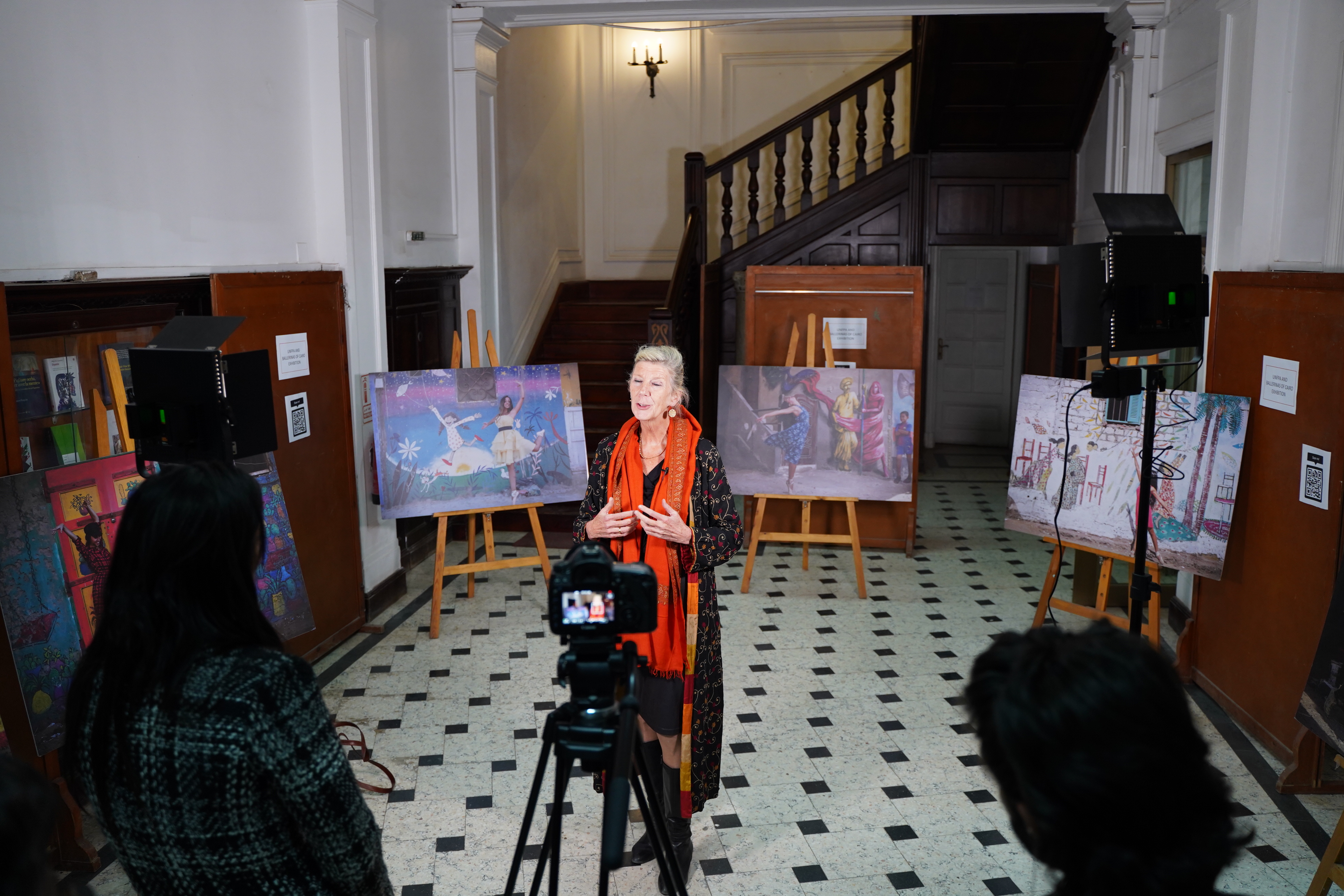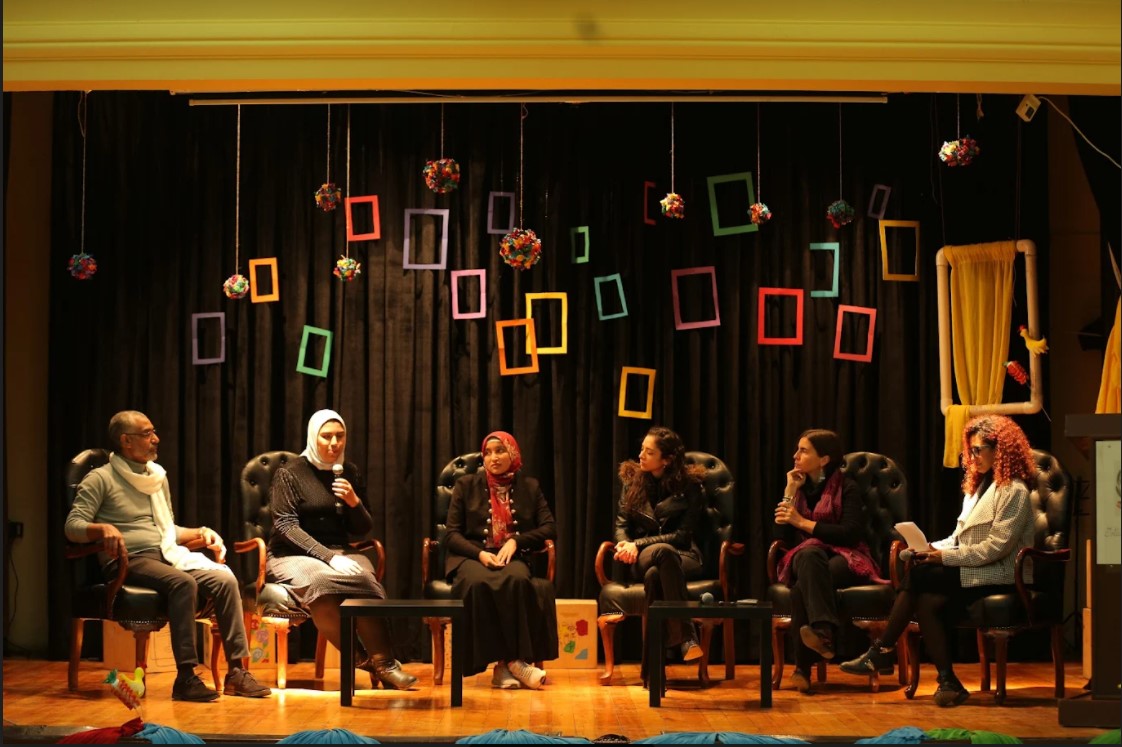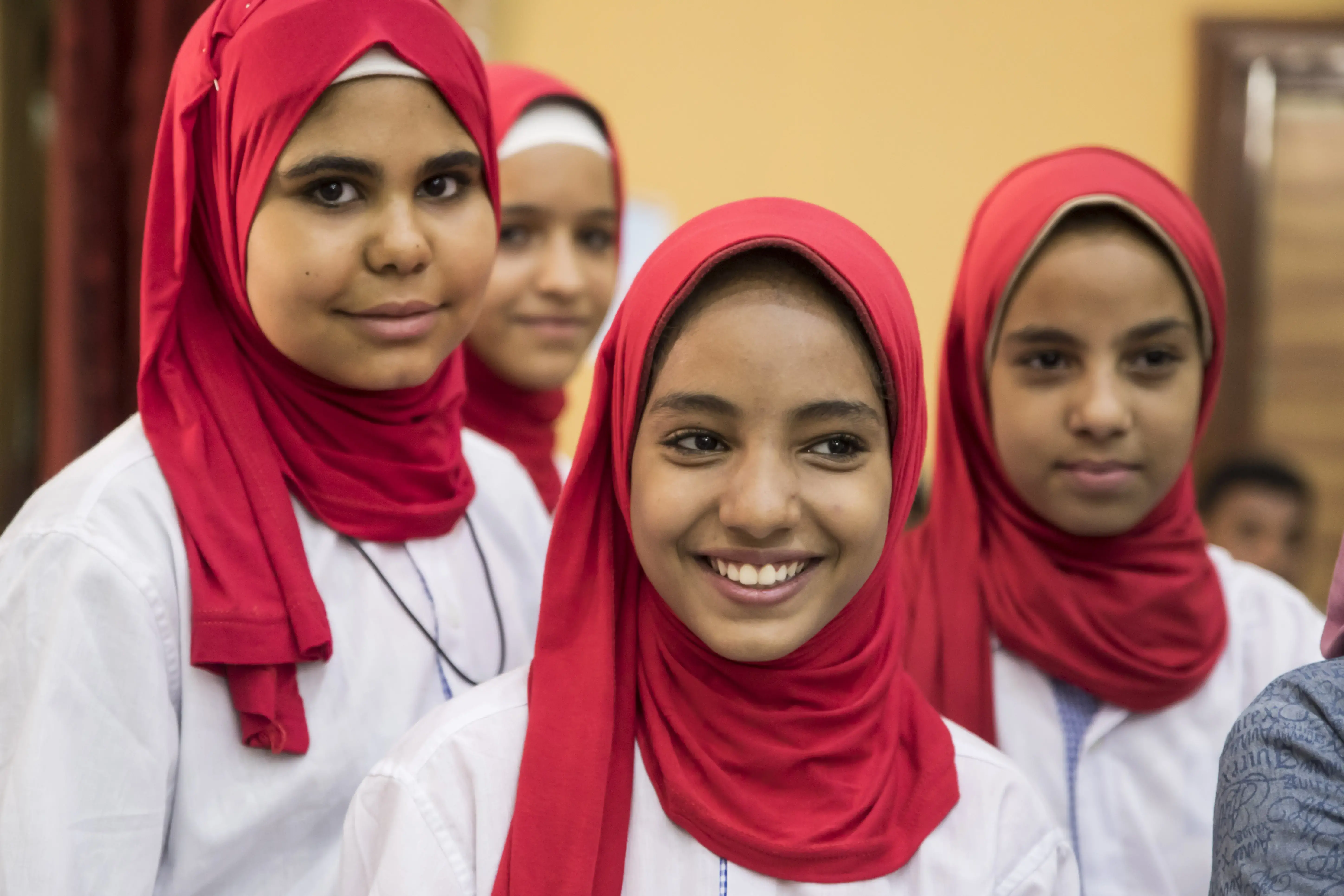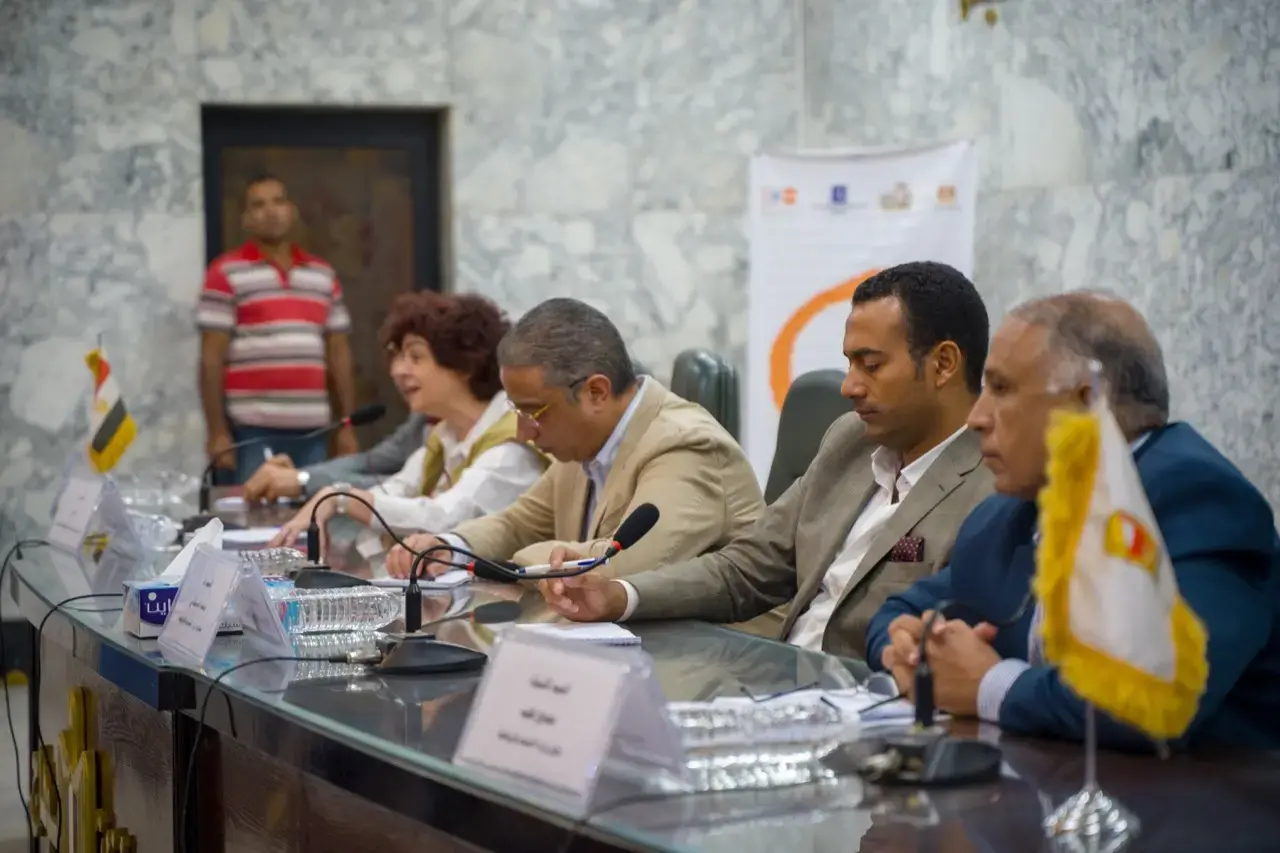UNFPA and the Italian Embassy and Italian Agency for Cooperation Development (AICS) celebrated Egyptian Women’s Day on March 16 at the Italian Cultural Institute, by shedding light on the role of the arts in changing behaviors and attitudes towards violence against women and girls.
The event brought together artists, drama therapy experts, community advocates and development partners and government representatives.
In his welcoming remarks, His Excellency Italian Ambassador to Egypt Michele Quaroni thanked the relevant stakeholders for the advancement of the women’s agenda in Egypt, and highlighted the 
Italian Embassy and AICS close work with UNFPA, as a key partner, for combatting violence against women and girls.
Elena Sacca, representing AICS, emphasised that “Art is a powerful ally in the deconstruction of gender stigmas… where precious collaboration with UNFPA in this field can advance gender equality in Egypt.”
Davide Scalmani, the Director of the Italian Cultural Institute further highlighted the way in which “culture is part of the effort [in eradicating violence against women] and that while people are born within certain cultures, they also shape and make culture so that it may constantly change and transform.”
On her part, UNFPA Representative in Egypt Frederika Meijer, said it is absolutely paramount to “make the lives of women and girls safer, healthier, and more prosperous, where a change in perception is needed, so that we can achieve gender equality today for a sustainable tomorrow.”
In keeping with the theme of the event being the importance of the arts to accomplish the new perceptions against violence against women, the representative from the National Council for Women (NCW) Mona ElGhazaly further spoke about the coordination efforts with AICS and UNFPA in the utilization of “art and creative activities in awareness raising, in which there have been numerous success stories within the Anti-Violence against Women units, that continue to maintain the privacy of girls.”
After exhibiting short films that depicted the interventions of UNFPA with AICS and with NCW, a panel discussion tackled the role of community theatre in combatting violence against women, comprising Mohamed Ali Hozein, an interactive theatre director, musician and actor, Samar Salama, Program Director at Etijah, Youth and Development Consultancy Institute, Fatma Hamdy, a volunteer at Nawah theatre group in Qena, Dalia Shawky, actress and graduate of the AUC Theatre Program, and Dalia Sabbour, expert in Applied Drama, Psychodrama, and Theatre of the Oppressed, facilitated by Sally Zohney, Gender Specialist at UNFPA.
This discussion focused on the good practices from the field, where theatre and drama were utilised to bring about transformation in both internal and external perceptions, with the aim of fostering community dialogues around forms of violence against women and girls. The panellists also discussed the role of arts and theatre in offering women and young people the opportunities to use their voices to share their experiences, and how drama can proactively address such experiences.
The event closed with an interactive performance from the Nawah theatre group entitled “Dababees.” The assembly of sketches was an expression of unreached hopes and dreams of young people, delineating life as bread, that is full of pins or “dababees.”
In the interactive session that followed the performance, the audience members pointed out the elements to which they related, while the actors described their challenges in community theatre, and underlined the notion that this performance was a dramatisation of their reality.





